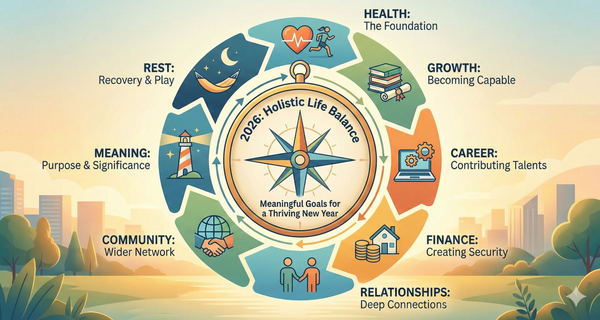What Makes a Great Mentor (and How to Find One)

What Makes a Great Mentor (and How to Find One)
Navigating the complexities of a career path can be challenging, but you don't have to do it alone. A great mentor can be a transformative force in your professional and personal life, offering guidance, support, and wisdom that can accelerate your growth. This guide will walk you through what makes a great career mentor, how to find one, and how to cultivate a successful mentorship. With these mentorship tips, you'll be well on your way to building a relationship that can shape your future.
What Makes a Great Mentor?
Understanding the qualities of an exceptional mentor is the first step in your journey to find a mentor who can make a real difference. A great mentor is more than just a successful person in your field; they are a guide, a teacher, and a trusted advisor.
The Core Qualities of a Great Career Mentor
When searching for a career mentor, look for individuals who embody the following characteristics. A mentor with expertise in your field can offer invaluable insights and practical advice. They've navigated the challenges you're facing and can share lessons from their own experiences. Empathy and active listening are also crucial. A great mentor listens to understand, not just to respond. They can connect with your experiences on an emotional level, offering support that goes beyond a professional capacity. Furthermore, look for someone who has a genuine passion for sharing their knowledge. The best mentors are motivated by a desire to see others succeed and are generous with their time and wisdom. Lastly, the ability to provide honest, constructive feedback is non-negotiable. A mentor should be able to offer criticism in a way that is supportive and actionable, helping you to identify blind spots and areas for improvement.
The Mentor's Role: More Than Just an Advisor
A mentor's role extends far beyond simply giving advice. They act as a sounding board, providing a safe space for you to explore ideas and challenges. A great career mentor will also challenge your assumptions, pushing you to think critically and step outside of your comfort zone. This process is essential for true growth. They also act as a champion for your development, advocating for you when appropriate and connecting you with opportunities that align with your goals.
How to Find a Mentor Who's Right for You
Finding the right mentor is a proactive process that requires self-reflection and strategic outreach. These mentorship tips will help you identify and connect with the right person to guide you on your career path.
Step 1: Define Your Mentorship Goals
Before you even begin your search to find a mentor, you need to understand what you hope to gain from the relationship. Are you seeking guidance on a specific skill, looking for help navigating a career transition, or wanting to expand your professional network? Clearly defining your goals will help you identify the type of mentor who can best assist you.
Step 2: Identify Potential Mentors
Once you have a clear understanding of your goals, you can begin to identify potential mentors. A great place to start is within your current organization. Look for senior colleagues whose career paths you admire. Professional networking platforms like LinkedIn are also powerful tools to find a mentor. You can search for professionals in your field or city and review their experience. Don't forget about alumni associations from your university, as well as industry-specific conferences and events. These are all excellent venues for meeting experienced professionals who may be open to mentorship.
Step 3: Making the Approach
When you've identified a potential career mentor, the next step is to make the approach. Your request should be professional, personalized, and respectful of their time. In your outreach, mention why you admire their work and how their experience aligns with your career goals. Make it clear that you have done your research and are serious about your professional development. This thoughtful approach will significantly increase your chances of getting a positive response.
Cultivating a Successful Mentorship
Finding a mentor is just the beginning. The real work lies in nurturing the relationship to ensure it is mutually beneficial and sustainable over the long term. Follow these mentorship tips to build a strong foundation.
Setting the Foundation for Success
From the first meeting, it's important to establish clear expectations. Discuss how often you will meet, what the format of your meetings will be, and what topics you plan to cover. Some mentor-mentee pairs find it helpful to create a simple mentorship agreement that outlines these details, ensuring both parties are on the same page.
How to Be an Excellent Mentee
The success of the mentorship also depends heavily on you. To be a good mentee, always come to meetings prepared with questions and topics for discussion. Respect your mentor's time by being punctual and concise. Be open to receiving feedback, even when it's difficult to hear, and demonstrate a willingness to learn and grow. Finally, always follow through on any commitments you make and express your gratitude for their guidance and support. A simple "thank you" can go a long way in showing your appreciation.
Your Mentorship Journey Starts Now
A great career mentor can be a pivotal figure in your professional life, providing the guidance and support you need to reach your full potential. By understanding what makes a great mentor, knowing how to find one, and actively nurturing the relationship, you are investing in your future success. The journey to find a mentor may require effort, but the rewards are immeasurable. Take the first step today and start building a relationship that will help you thrive for years to come.




